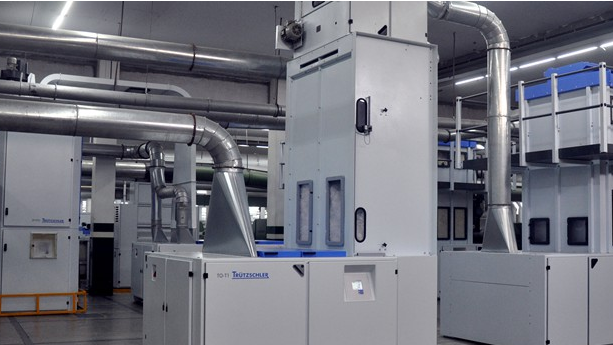Textile Industry Seeks Cheap Energy
The textile industry associations have demanded availability of electricity at Rs 8 per unit and gas at Rs 600 MMBTU, inclusive all taxes and Gas Infrastructure Development Surcharge (GIDC) respectively to make their products competitive internationally. Besides, they have sought new connections of electricity and gas for the export-oriented industrial units. This demand was made in a meeting of the Federal Textile Board chaired by the Federal Commerce Minister Khurram Dastgir Khan. Next meeting of the Board will take place on 29th August, to finalise the decision.
Those who attended the meeting included All Pakistan Textile Mills Association, Pakistan Readymade Garments Manufacturers and Exporters Association, Pakistan Hosiery Manufacturers Association, All Pakistan Textile Processing Mills Association, Pakistan Textile Exporters Association, Pakistan Denim Manufacturers Association, Pakistan Bed wear Exporters Association and others.
The industry associations informed the federal minister that the RLNG available in Punjab from March 2, 2016 would become unviable with increase in prices of crude oil as it is linked with the Brent prices. They proposed that the cost of RLGN and domestic gas should be on the basis of weighted average.
It was pointed out in the meeting that Pakistan’s regional competitors were supplying energy to their industry at a lower rate. The electricity price in Bangladesh and India was $0.10 per unit. So far as the gas price is concerned, it is available at $3.1 and $4.66 in Bangladesh and India respectively.
They said the industry in Pakistan was paying two surcharges on electricity, namely, the Tariff Rationalisation Surcharge at Rs 3.10 and Financial Surcharge at Rs 0.43 per unit, which have increased their cost of doing business. “The prime minister had announced a reduction in the electricity rates but the relief has only been provided on account of fuel adjustment,” they pointed out.
They said the fuel adjustment is based on the international fuel prices, which has no relevance to the base rates of fuel. “These surcharges are levied to mitigate line losses including theft and its financial charges while the textile industry is almost 100 percent compliant on payment,” they argued.

Leave a Reply
You must be logged in to post a comment.